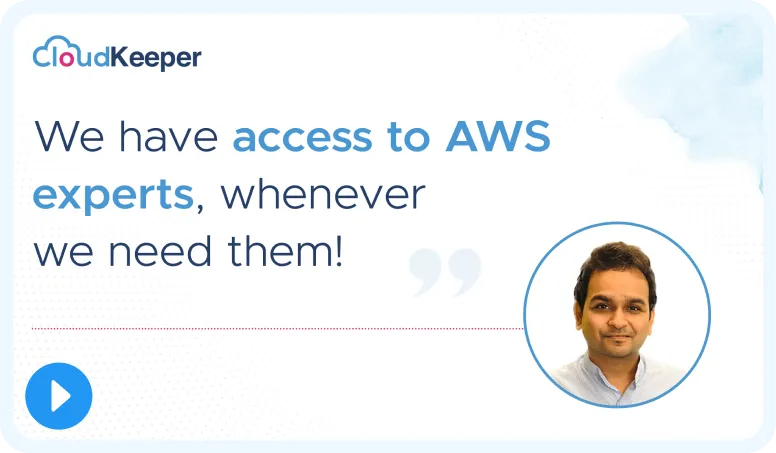- Over/under-provisioned resources at the node, pod, and volume level.
- DevOps inefficiencies from manual scaling and performance tuning.
- Limited cost visibility across workloads, namespaces, & clusters.
- Security & compliance risks from unmanaged access and outdated components.
- Blind spots due to missing metrics and monitoring tools.
- Managing tools & integration in Kubernetes can be overwhelming.
Expert-led Kubernetes services + Powerful Toolkit
Optimization & Efficiency
- Right-size resources across nodes, pods, and volumes.
- Automate performance tuning to reduce DevOps effort.
- Balance performance with cost using real-time insights.
Intelligent Monitoring & Visibility
- Break down costs by workload, namespace, and labels.
- Identify key spend drivers and inefficiencies.
- Use historical trends for smarter resource planning.
Alerting & Governance
- Designated and certified cloud expert for 24*7 personalized support.
- Well-Architected Reviews and cloud cost audits.
- Cloud Architectural consulting and migration support.
- 1. Audit Your Kubernetes FootprintWith read-only access, we conduct a thorough analysis of your setup, versions, scaling, and workloads to gather critical metrics and identify optimization potential.
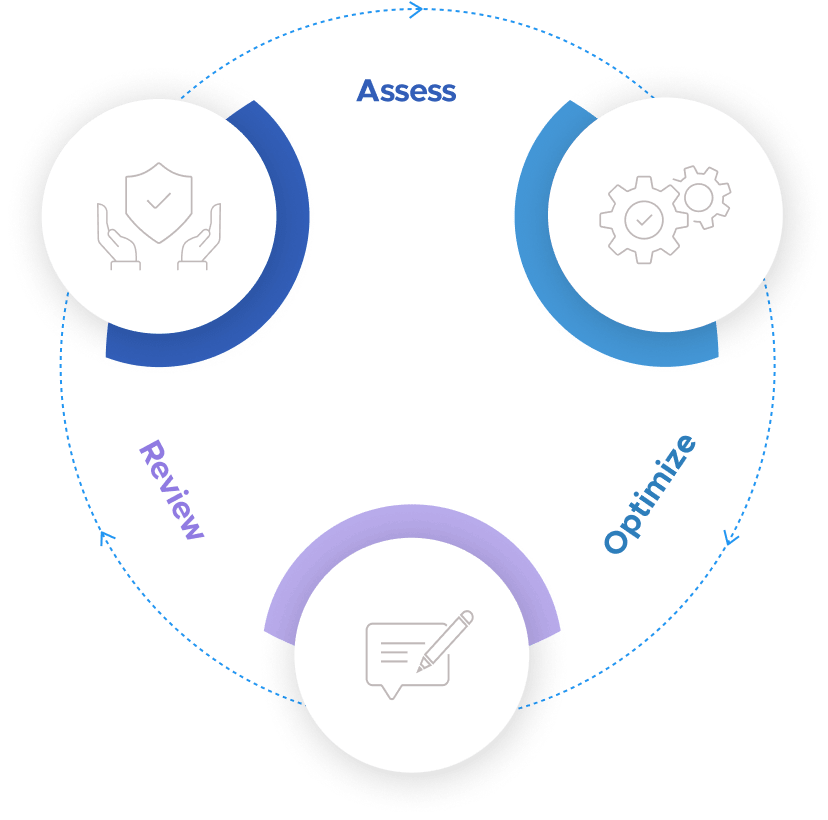
- 2. Tune for Performance & EfficiencyBased on our findings, we provide data-driven recommendations and implement best practices for cost, performance, reliability, and security.
- 3. Measure Results & RefineWe continuously monitor the impact of changes, analyze results, and refine strategies to ensure your Kubernetes environment always performs at its best.
- CPU & Memory Cost OverviewGain visibility into CPU and memory usage across nodes and pods to rightsize workloads and reduce waste.01
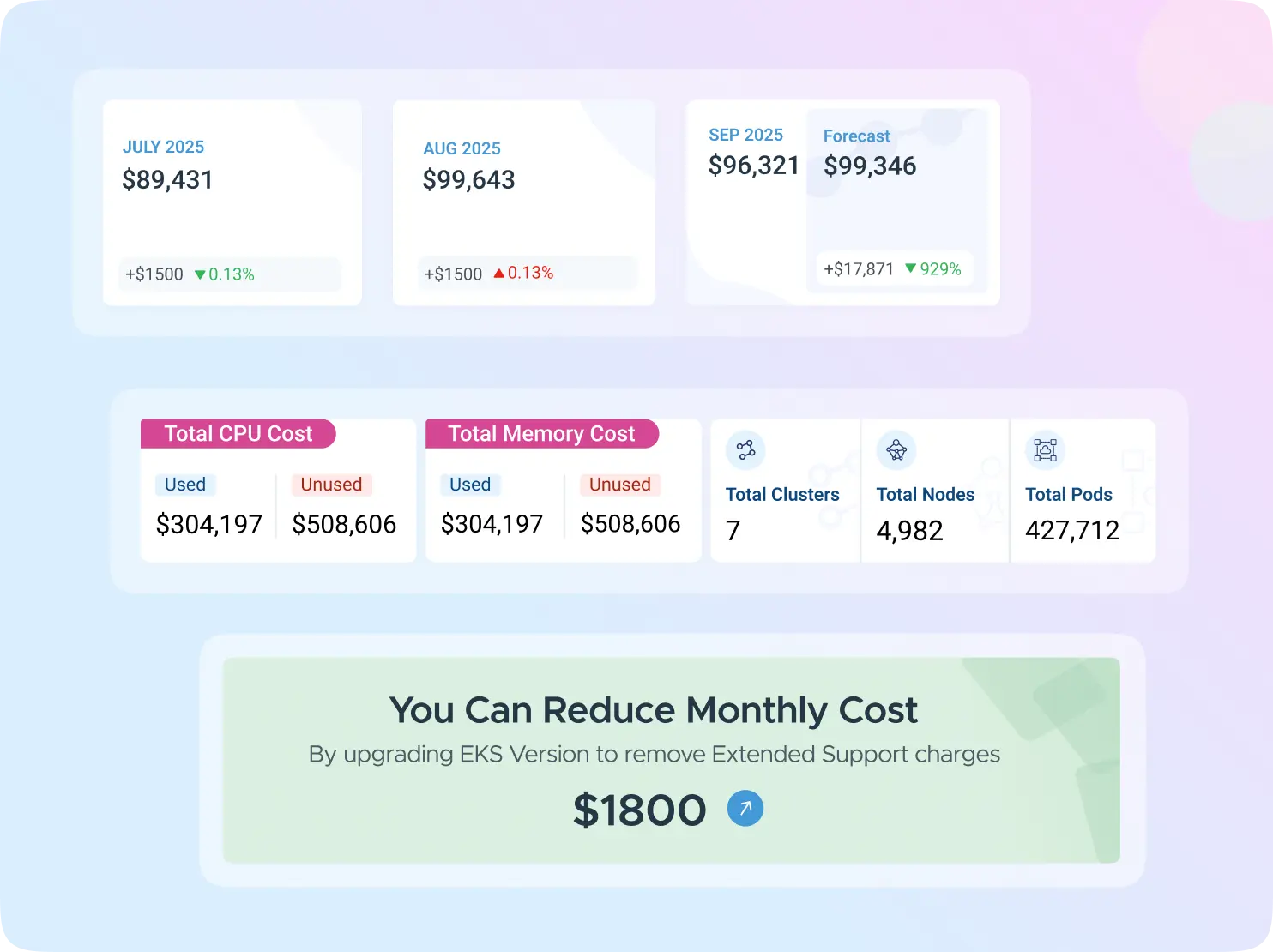
- In-Depth Cost AnalysisDrill down into costs by cluster, namespace, label, or team to uncover usage patterns and optimization opportunities.02
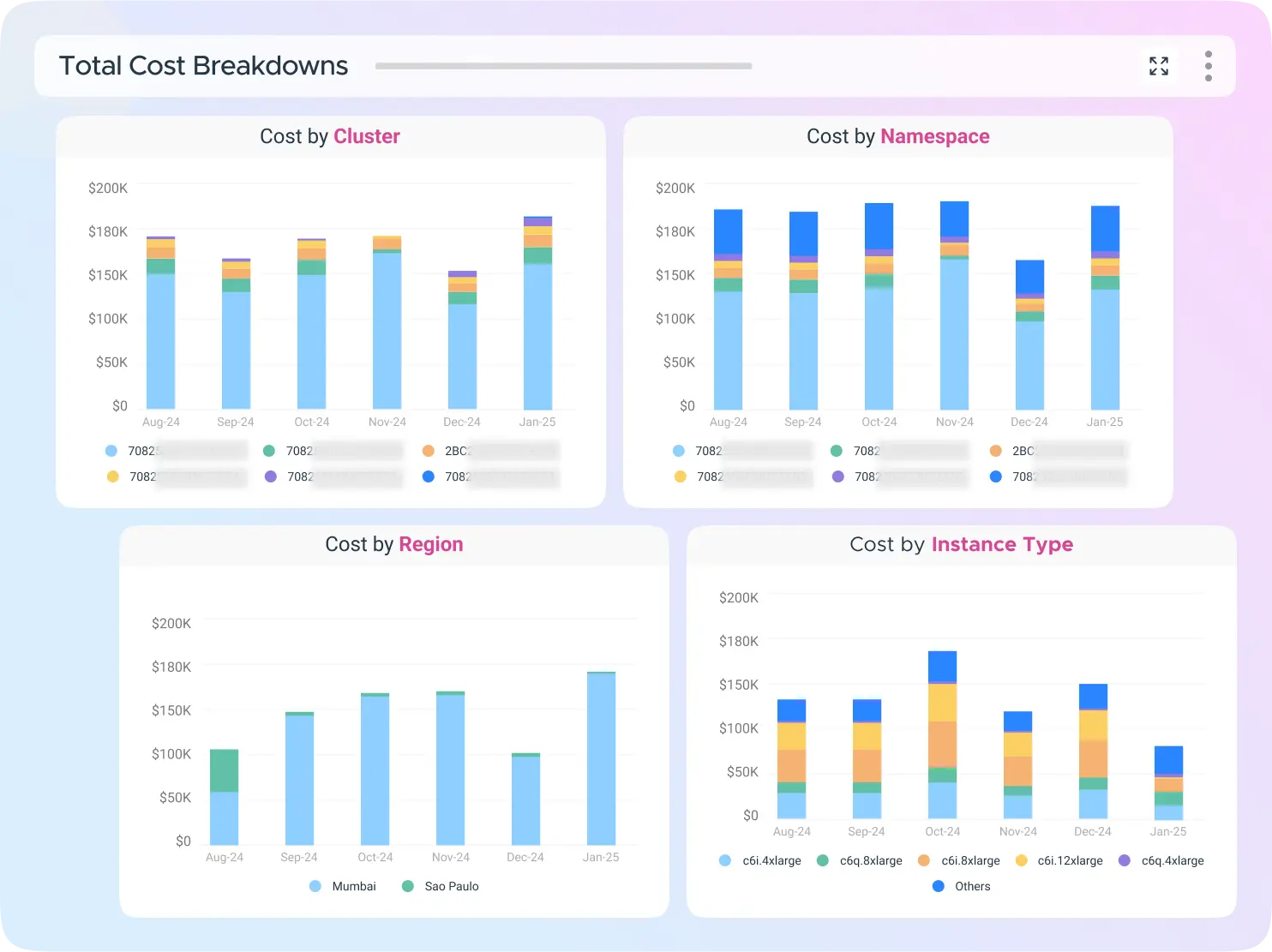
- Proactive Alerts & RecommendationsStay ahead with proactive alerts for budget breaches, anomalies, and inefficiencies - plus tailored recommendations to fix them.03
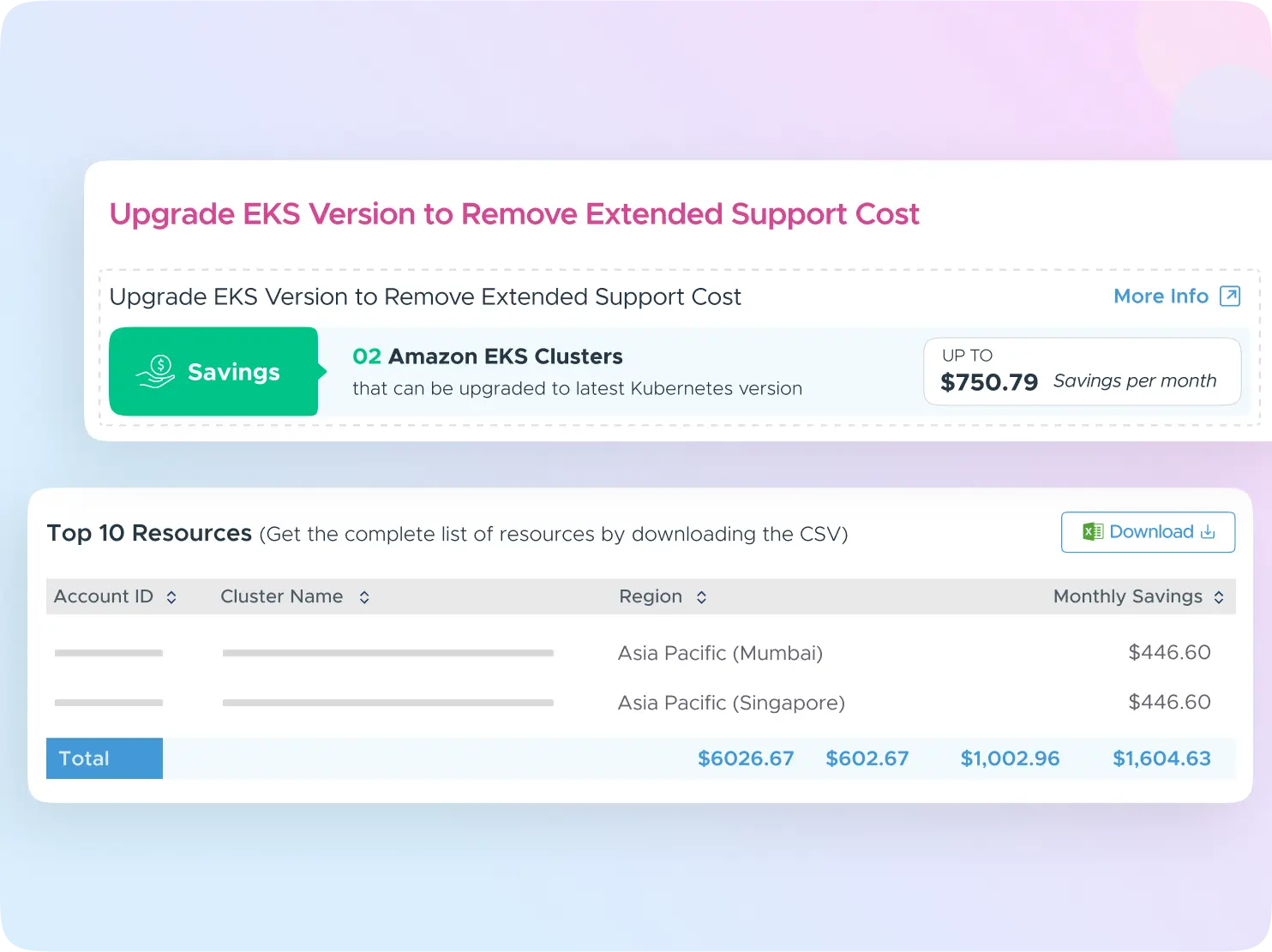
- Account-Wise Cost BreakdownView granular cost distribution across different accounts to identify high spenders and optimize resource allocation.04
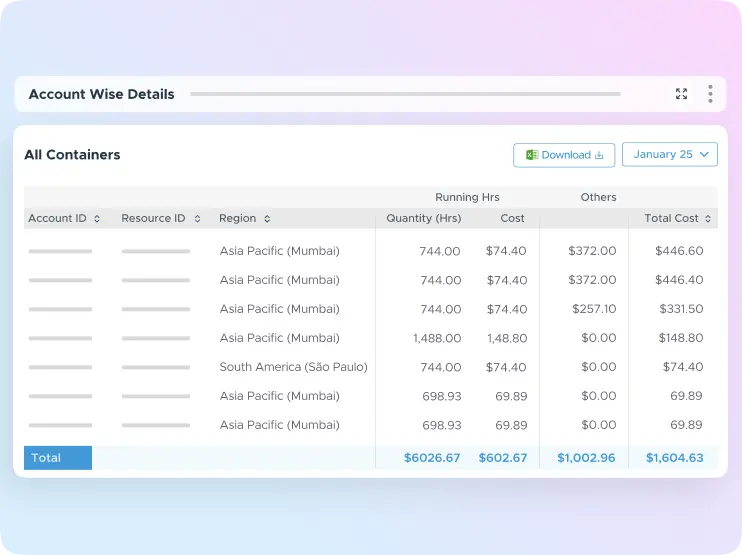
- Amazon EKS
- Google Kubernetes Engine
- Self-hosted (on-prem or hybrid)
your Cloud Cost Optimization Partner?
15+
Years of experience in cloud
150+
Certified solutions architects & cloud experts
$120
Million savings delivered
20%
Average savings on the entire cloud bill
CloudKeeper helps you achieve better performance, more control, and a lot of savings.
Listed in 3 out of 5 segments in IDC Market
Glance: FinOps Cloud Transparency, 2Q23
Recognized by ISG Research for its proven
capabilities and scale in providing FinOps
solutions across 14 categories
Leader in the G2 Grid for Cloud
Cost Management
Frequently Asked Questions
Q1. What is Kubernetes?
Kubernetes (K8s) is an open-source container orchestration platform designed to automate the deployment, scaling, and management of containerized applications.
High-Level Kubernetes Architecture
- Control Plane: The brain of Kubernetes, consisting of components like API Server, etcd (distributed storage), Scheduler, and Controller Manager.
- Nodes: Worker machines that run the containerized applications, each containing a Kubelet (node agent), container runtime (like Docker), and kube-proxy for networking.
- Pods: The smallest deployable units in Kubernetes, consisting of one or more containers that share storage, network, and a specification on how to run.
Q2. What is Kubernetes used for?
Kubernetes is used to automate the deployment, scaling, and management of containerized applications. Instead of managing each container manually, Kubernetes helps teams.
- Run applications reliably across environments.
- Scale up or down automatically based on demand.
- Ensure high availability and fault tolerance.
- Optimize infrastructure usage to reduce waste and cost.
Q3. Why do companies need Kubernetes management services?
Managing Kubernetes at scale is complex. Companies often struggle with configuration, resource optimization, cost tracking, and ongoing maintenance. Expert-led Kubernetes management helps streamline operations, reduce DevOps burden, and avoid performance or cost issues.
Q4. What is Kubernetes optimization, and how does it help?
Kubernetes optimization involves right-sizing workloads, fine-tuning autoscaling policies, improving observability, and controlling costs. It ensures your clusters are efficient, high-performing, and cost-effective, without sacrificing reliability.
Q5. Do you support both cloud-managed and self-hosted Kubernetes?
Yes. CloudKeeper supports all major Kubernetes environments, including AWS EKS, GCP GKE, and self-hosted clusters, offering consistent optimization and cost visibility across all platforms.
Q6. What access does CloudKeeper need to start the optimization process?
We only require read-only access to your Kubernetes environment during the assessment phase. This ensures a secure and non-intrusive review of your cluster setup, workloads, and configurations.
Q7. How often should Kubernetes optimization be performed?
We recommend running a full optimization cycle every 3 to 6 months. This ensures that changes in workload patterns, scale, or cloud pricing are regularly addressed to maintain cost efficiency.
Q8. Can I get customized cost dashboards for my teams or business units?
Yes. CloudKeeper creates custom cost dashboards segmented by namespace, label, cluster, or team, so you can track spending across different departments or projects with clarity.
Q9. What makes CloudKeeper’s Kubernetes services different?
Unlike generic MSPs, CloudKeeper combines deep Kubernetes expertise with a proprietary cost optimization platform, tailored dashboards,and a structured 3-step framework (Assess → Optimize → Review) for ongoing efficiency and performance gains.
Q10. What is the difference between Kubernetes and Docker?
Docker is a platform used to create and run containers—lightweight, portable units that package applications and their dependencies.
Kubernetes, on the other hand, is a system that manages and orchestrates those containers across multiple machines.
Q11. How to use Kubernetes in AWS?
You can run Kubernetes in AWS in two ways:
- Self-managed on EC2 instances.
- Managed service using Amazon EKS, which handles setup and scaling for you.
Q12. How to use Kubernetes in Google Cloud?
- Self-managed on Compute Engine instances: You set up and manage Kubernetes clusters yourself on virtual machines.
- Managed service using Google Kubernetes Engine (GKE): GKE automates cluster provisioning, upgrades, scaling, and security, making it easier to run Kubernetes at scale.
Speak with our advisors to learn how you can take control of your Cloud Cost


